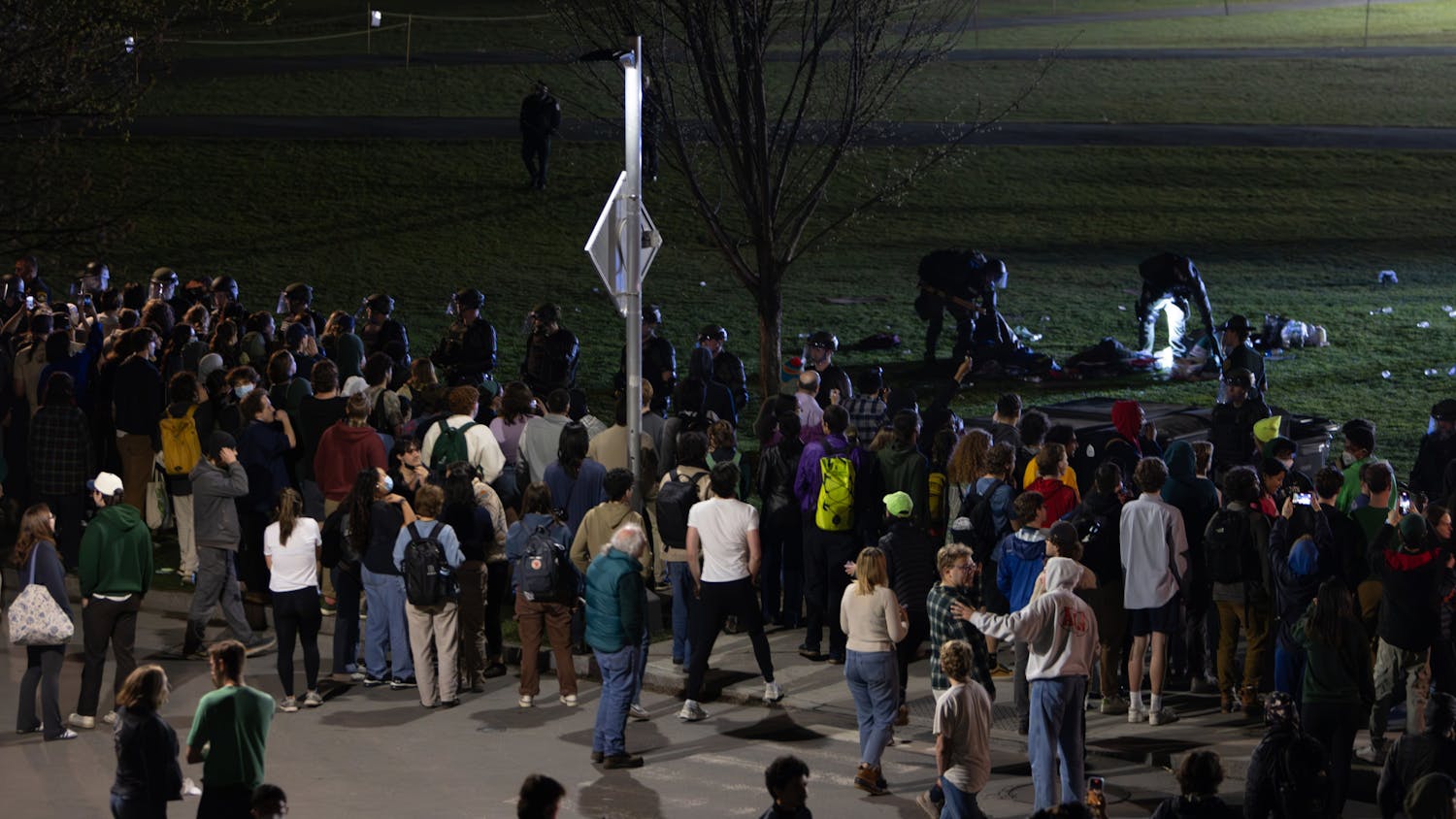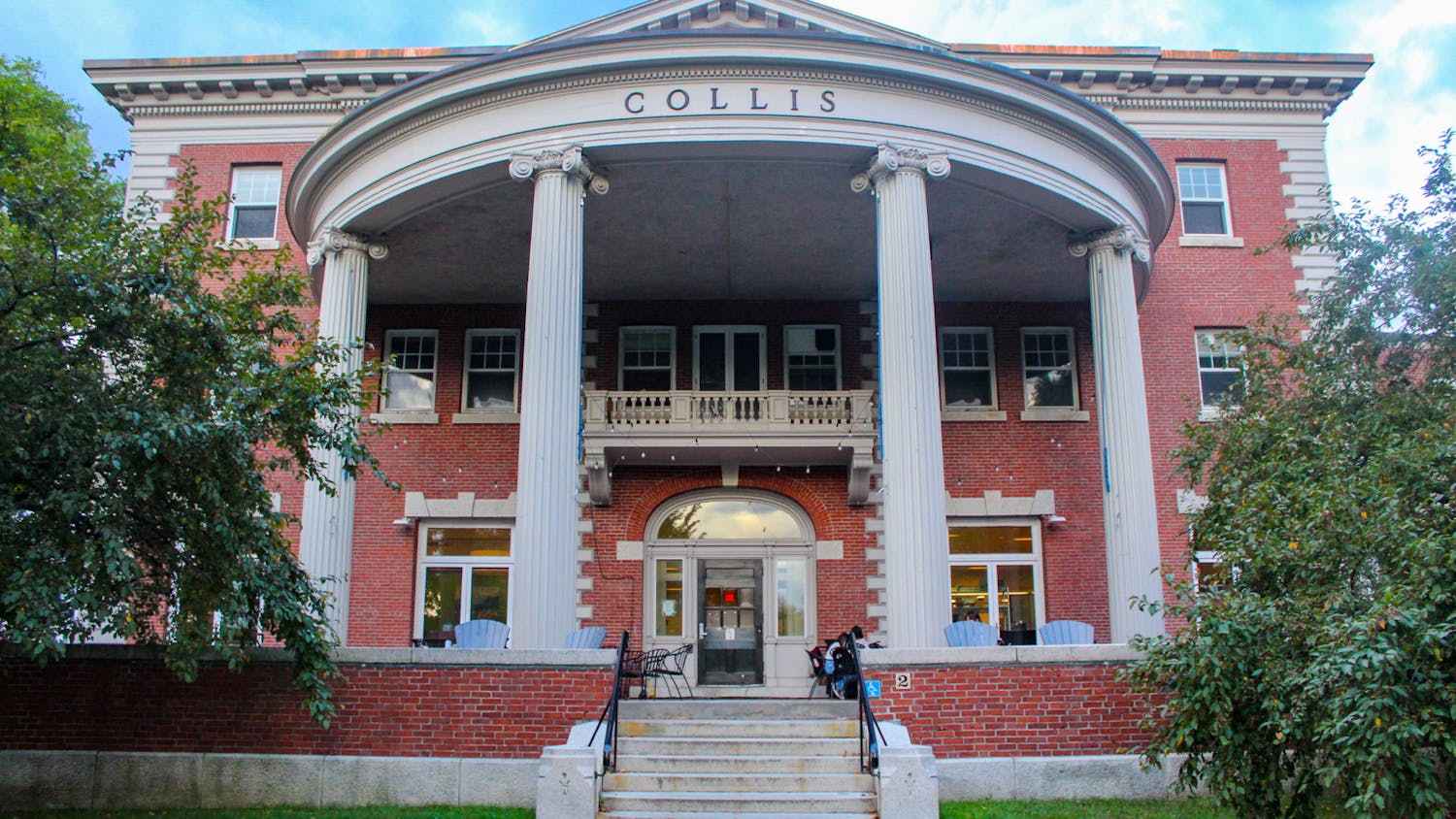On Saturday, a gloomy, gray day, a few friends and I sat on the Green and reflected on our all-too-short time here. We each admitted that there was at least one time at Dartmouth when we felt uncomfortable, especially during freshman fall. A year later and halfway through sophomore fall, all of us lament that we have only three years left, at a college that none of us wanted to leave.
As every student knows, Daniel Webster once said, "It is, Sir, as I have said, a small college. And yet there are those who love it." This sentiment holds even with our school's attendant problems. Why else would alumni race back to Hanover at any chance they get and contribute around 230,000 hours each year volunteering for Dartmouth? Why would sophomores, still not halfway through their college careers, already worry about leaving Hanover? Despite the incessant bad press surrounding it, the Greek scene contributes hugely to the College's hard-to-describe sense of place.
This conclusion may seem like the last reason to love Dartmouth, given the constant criticism surrounding Greek life. Most recently, the leak of Beta Alpha Omega fraternity's Google group has initiated new dialogue about pledge terms. Greek houses are home to hazing, sexual assault and binge drinking, yet 80 percent of students eligible to rush still choose to do so. This percentage would be more typical at larger schools than liberal arts schools like Dartmouth. Yet the high percentage of students involved in Greek life indicates that some of the nation's smartest students not only want to, but do participate in Greek life. Students would not continue to join fraternities and sororities if they didn't perceive them as having an overall beneficial effect.
Growing up in Virginia, I was surrounded by the southern Greek system. Upon arriving in Hanover, I noticed how inclusive the houses here were. My freshman year, hanging out in Greek houses facilitated many of my current friendships. My friends at schools without Greek systems mostly ended up staying friends with the small group of people they met their freshman fall, but because the Greek system offers spaces in which all of campus can hang out, there are so many more opportunities to interact with new people every night.
I've only been in a sorority for two weeks, but this experience has already shown me that the Greek system still exists because many people within it are very happy. Yet it is crucial that we do not ignore the flaws of the system. I often hear people argue that our Greek scene is "better" than those at other schools. These same people do not feel the need to improve the Greek system because "it could be worse." This conclusion does not follow. Dartmouth is one of the best schools in the country across all aspects of student life. Our Greek system should, like the rest of our school, stand as an example for other schools to look up to and emulate. Students should strive to make the Greek system the best it can be, just as they strive to make every part of student life top-notch.
Improving affiliated culture, and even improving Dartmouth as a whole, does not entail eliminating the Greek system. Those who believe that the Greek system should be abolished continue to ignore its positive aspects. Theirs is a simplistic argument that overlooks the fact that most students derive some sort of satisfaction from their affiliation.
With the introduction of '17s into the fraternity scene and the rest of pledge term yet to come, I urge our community to grapple with the issues of the Greek system. This school belongs to each student here, and ignoring either side of the Greek debate is not fair to the school as a whole. Like many parts of Dartmouth, the Greek system is not perfect. And yet, there are those who love it.



